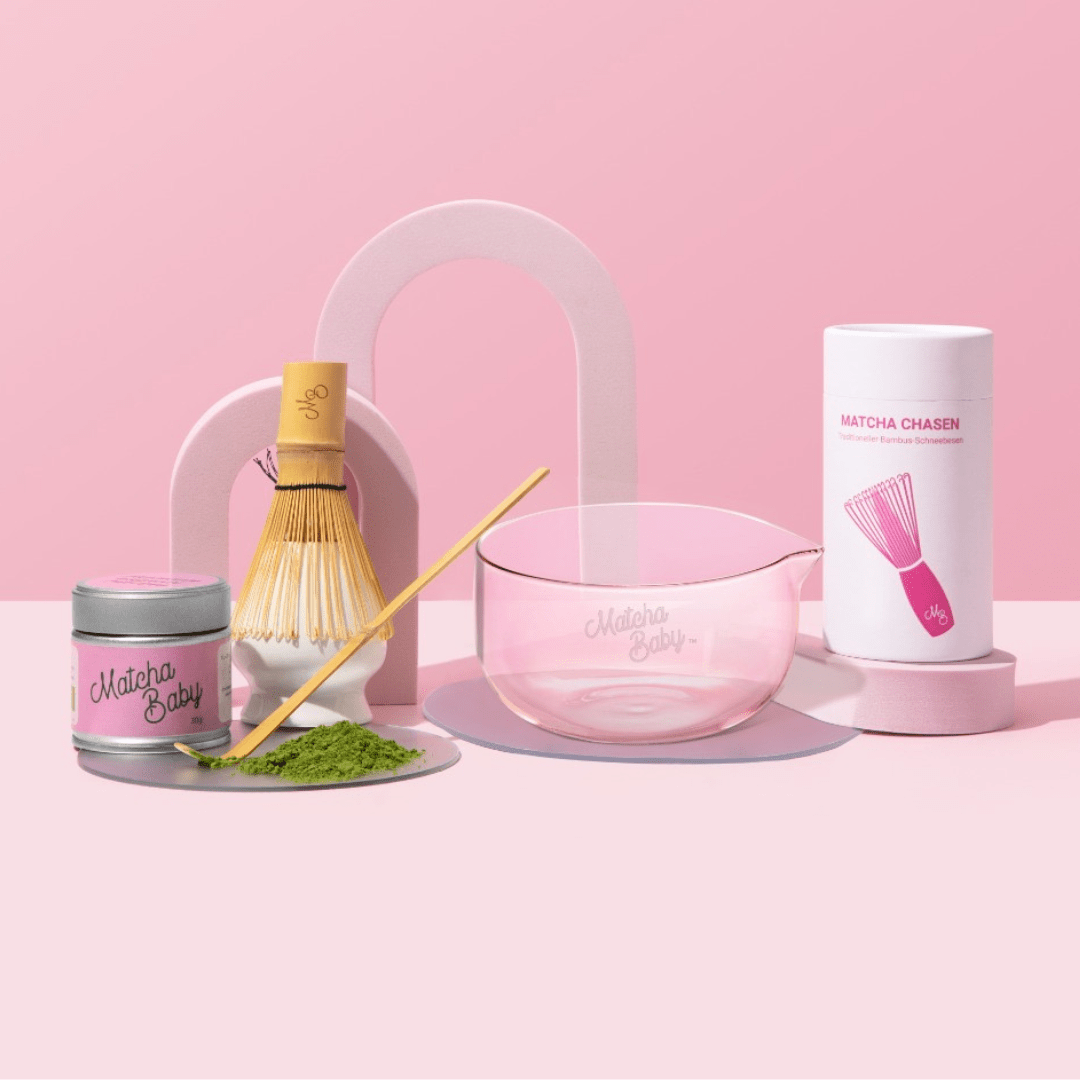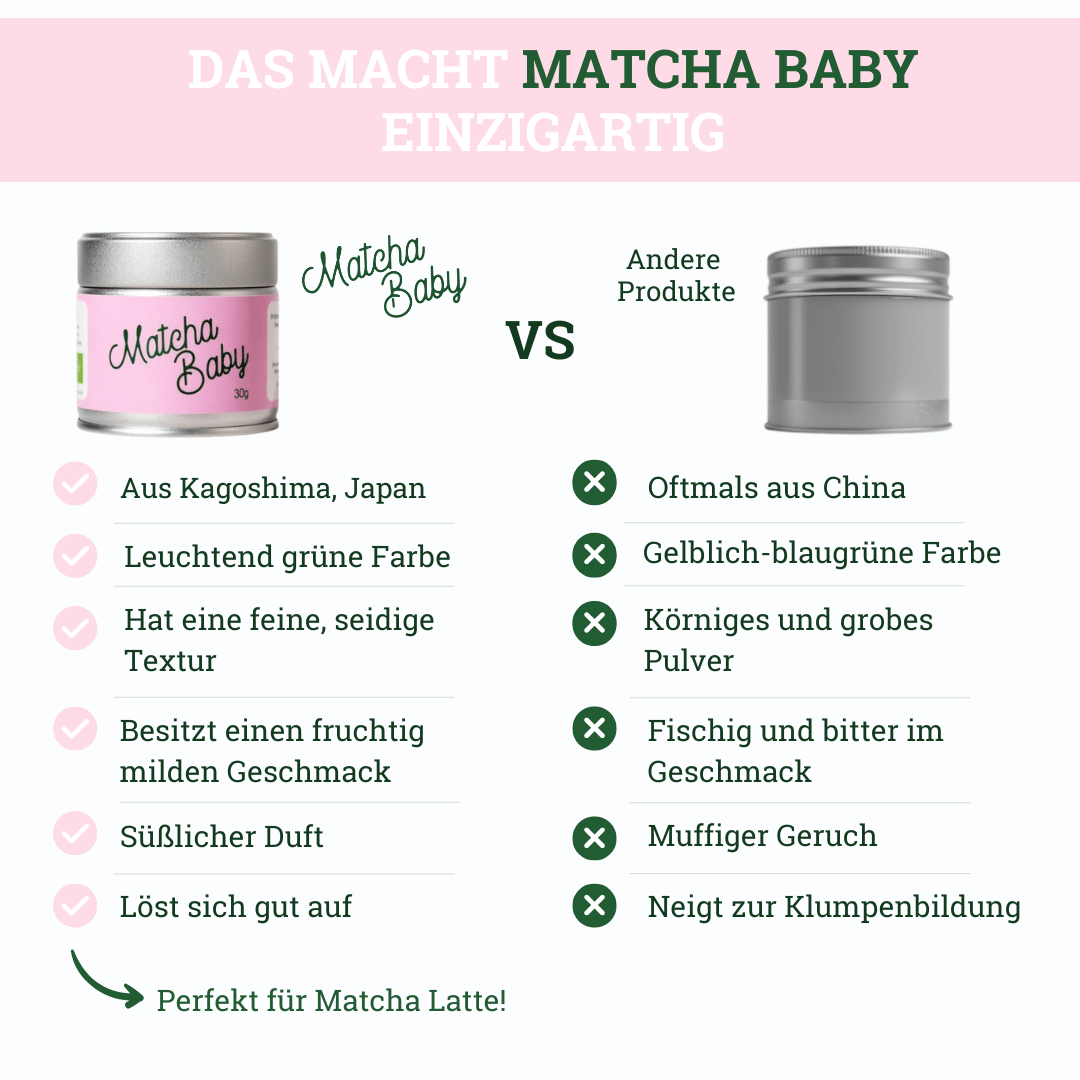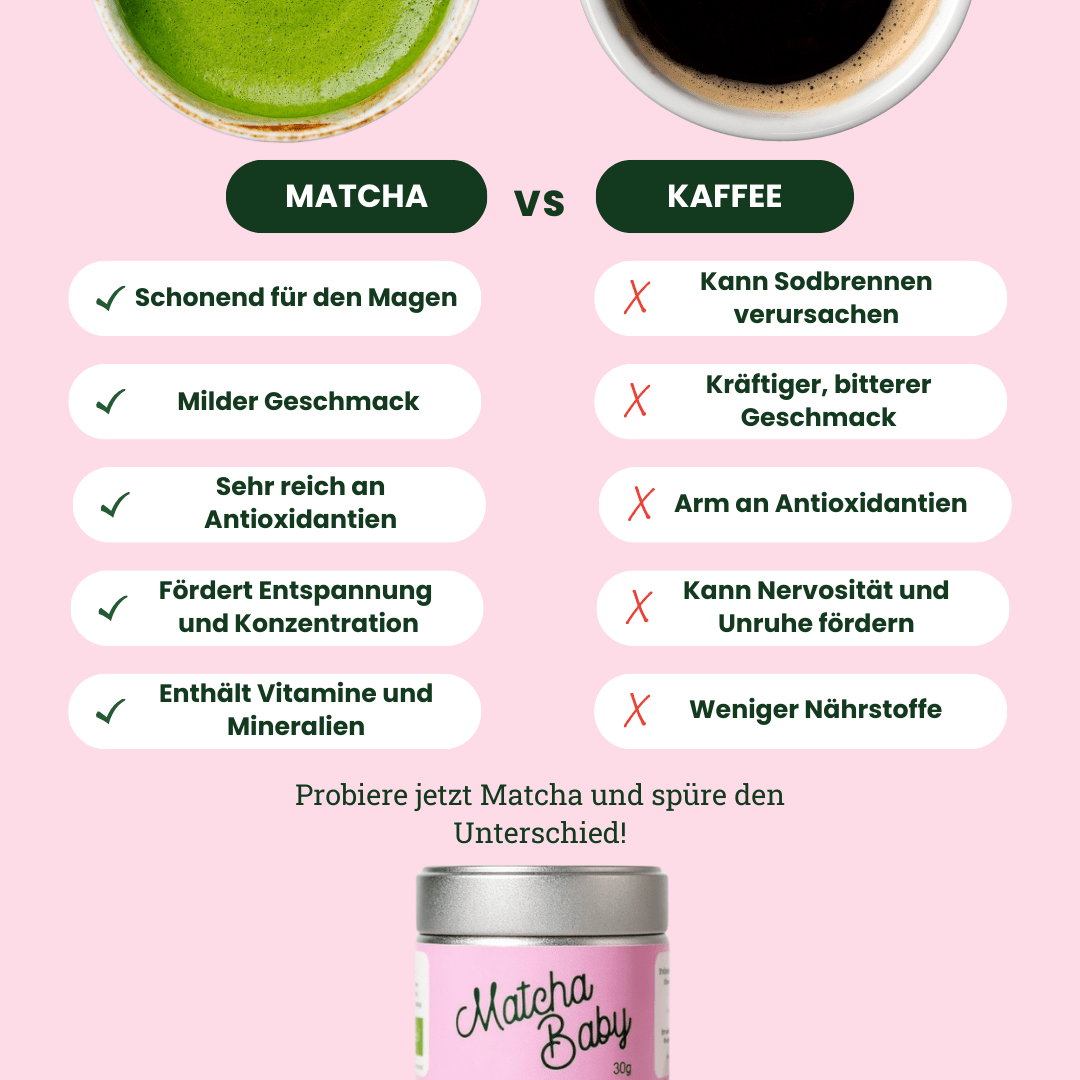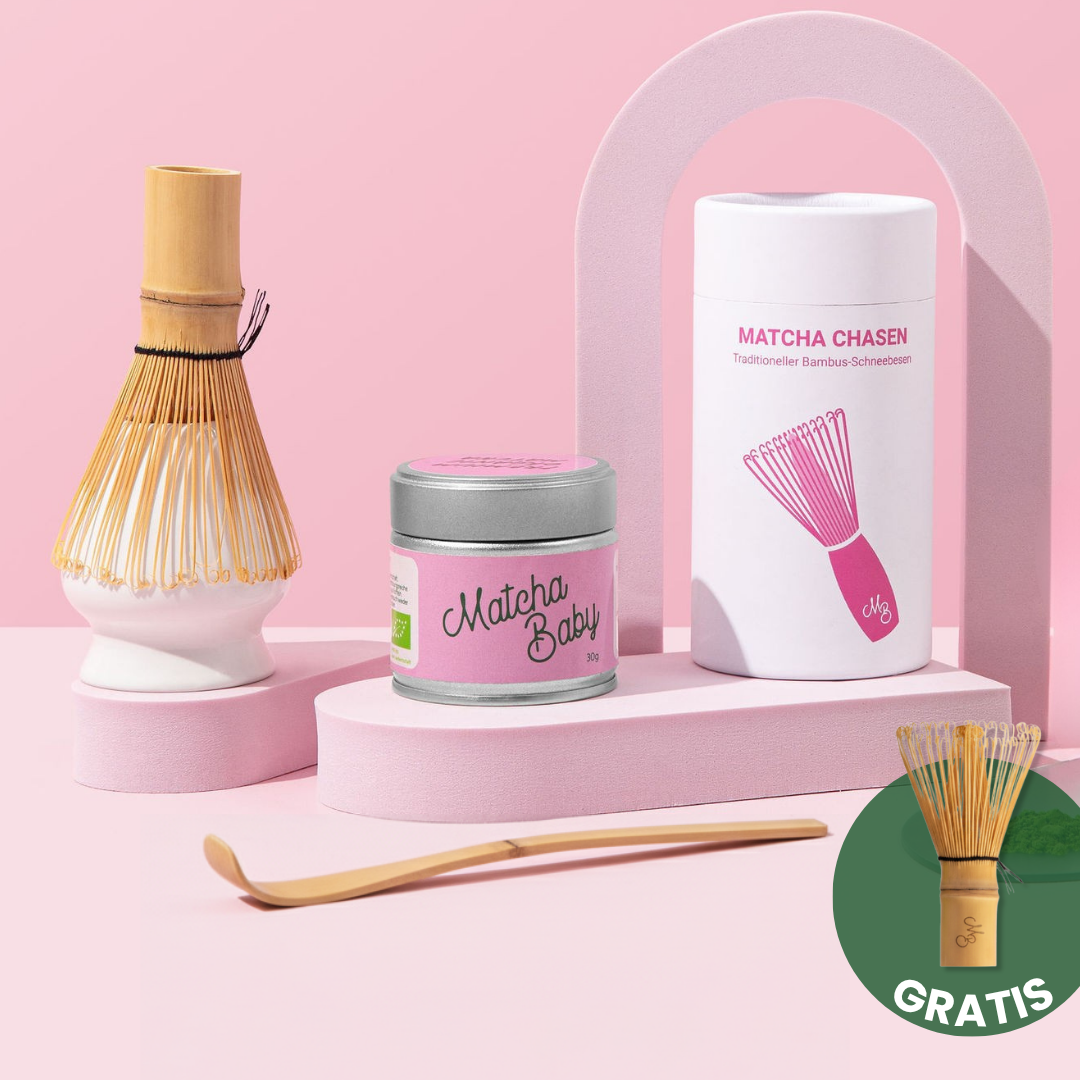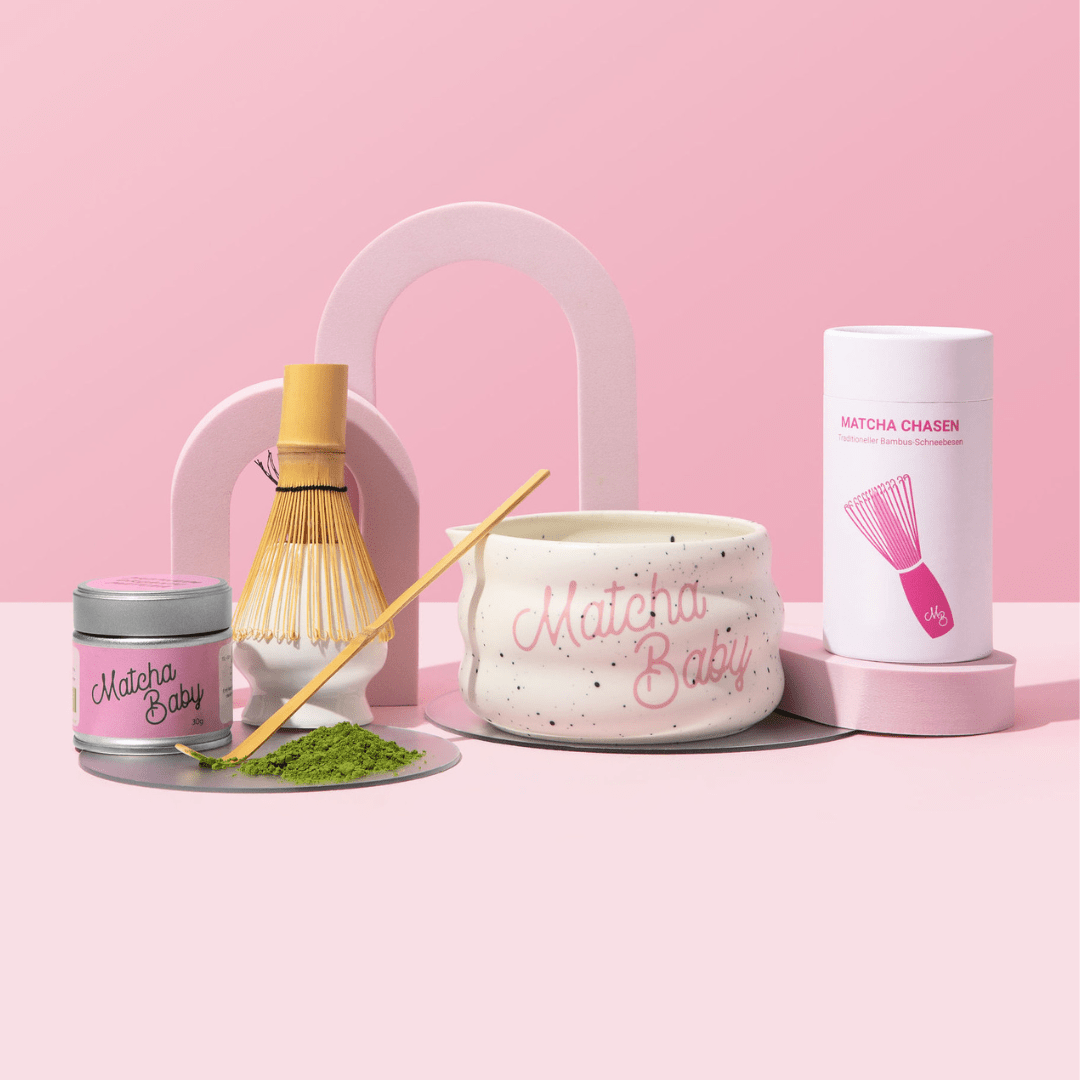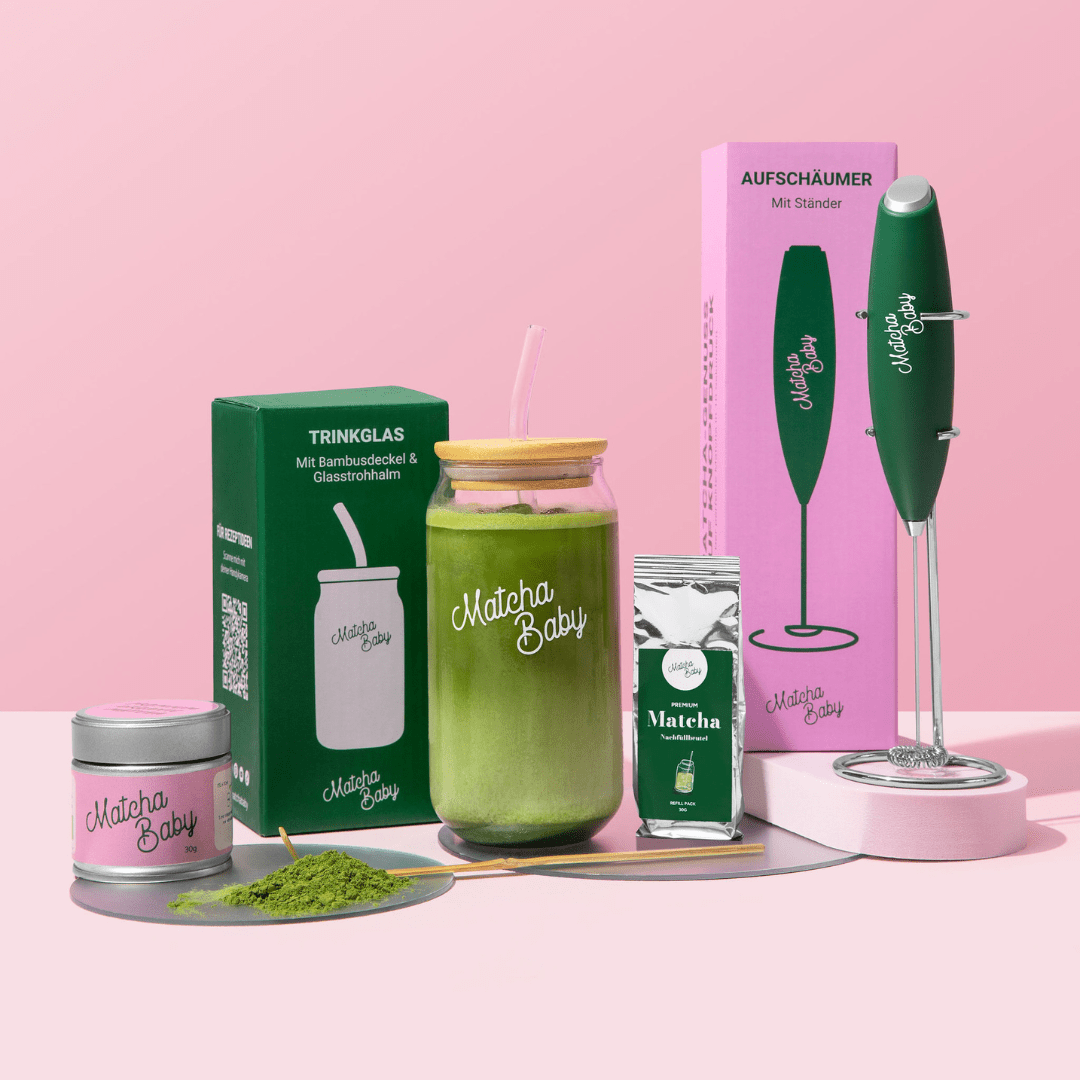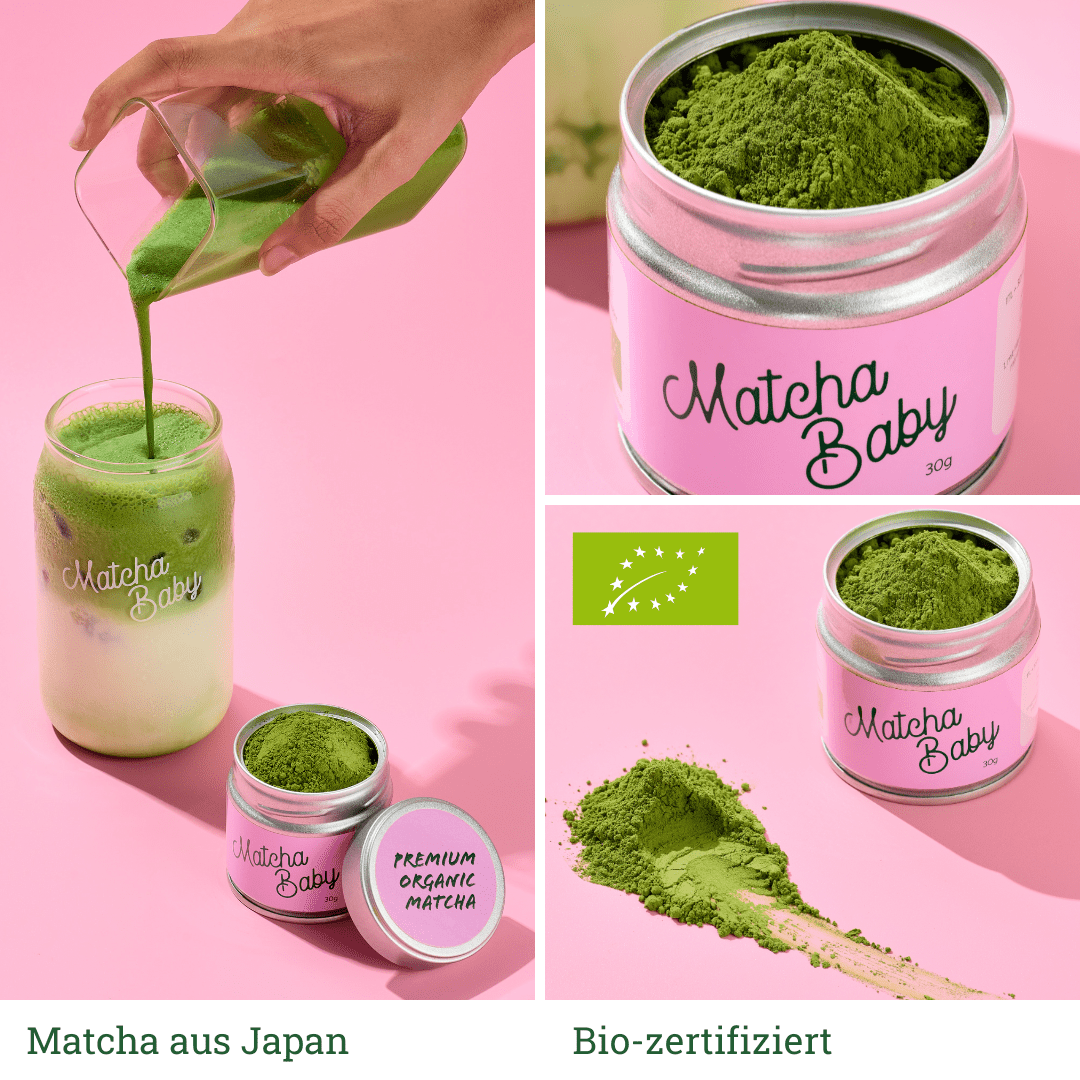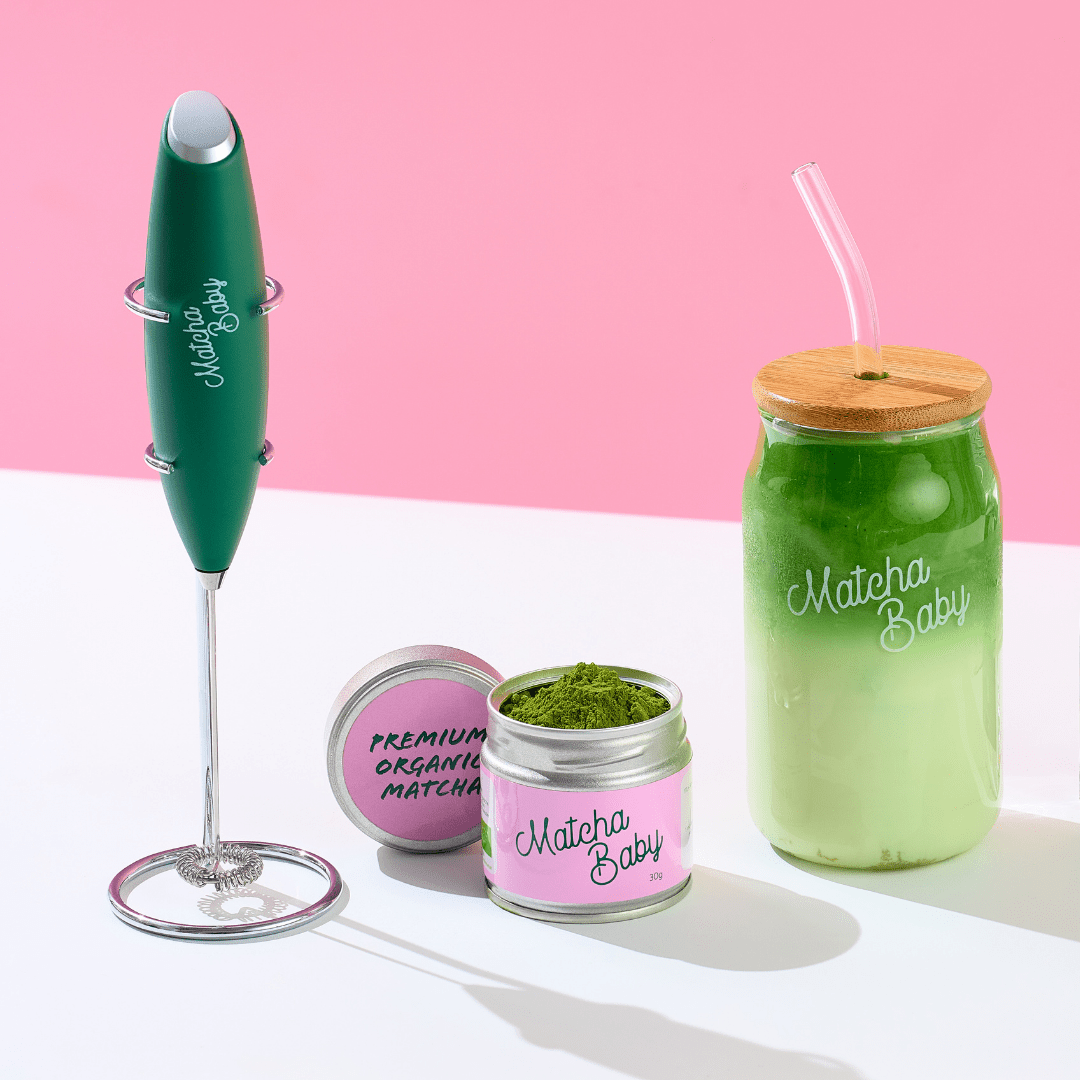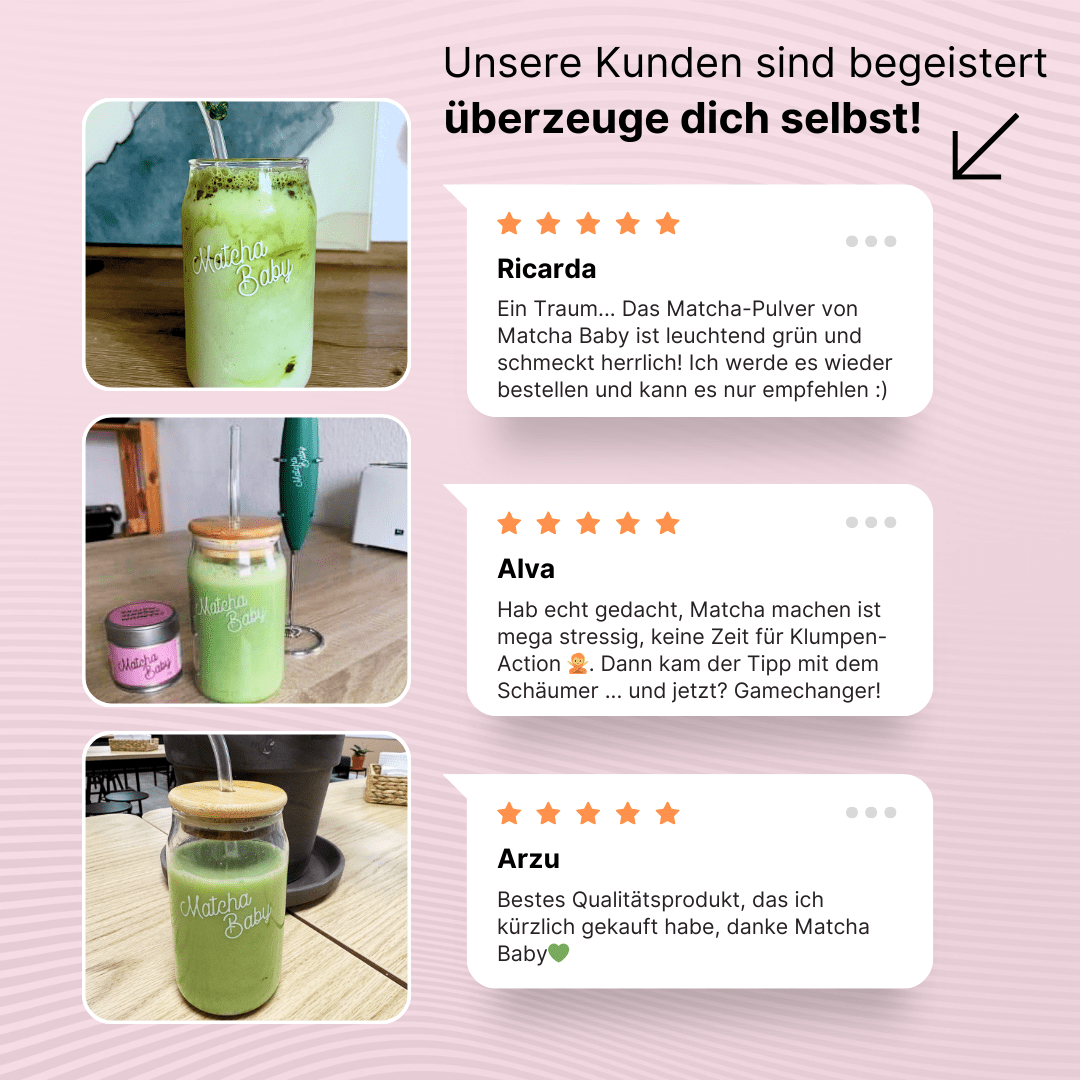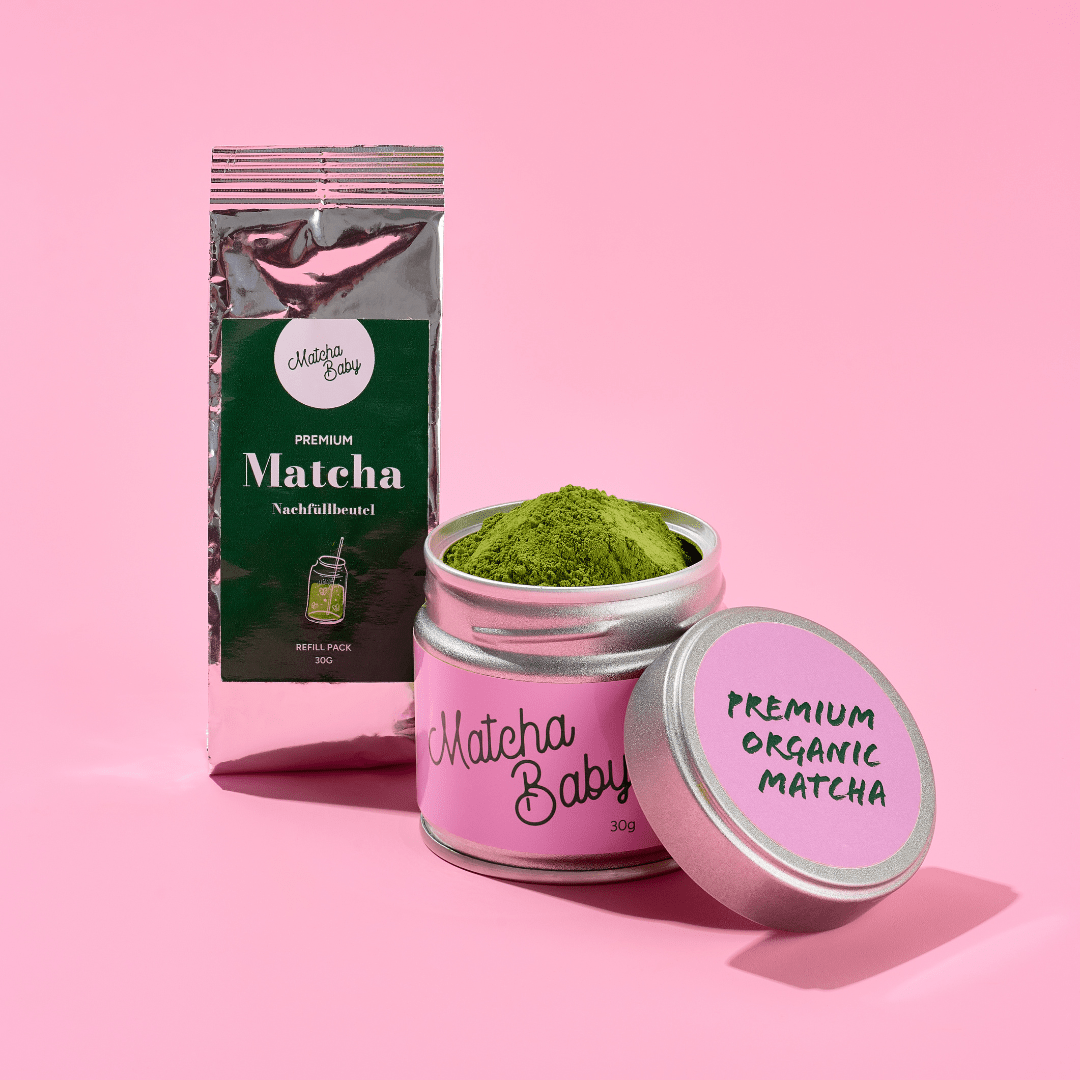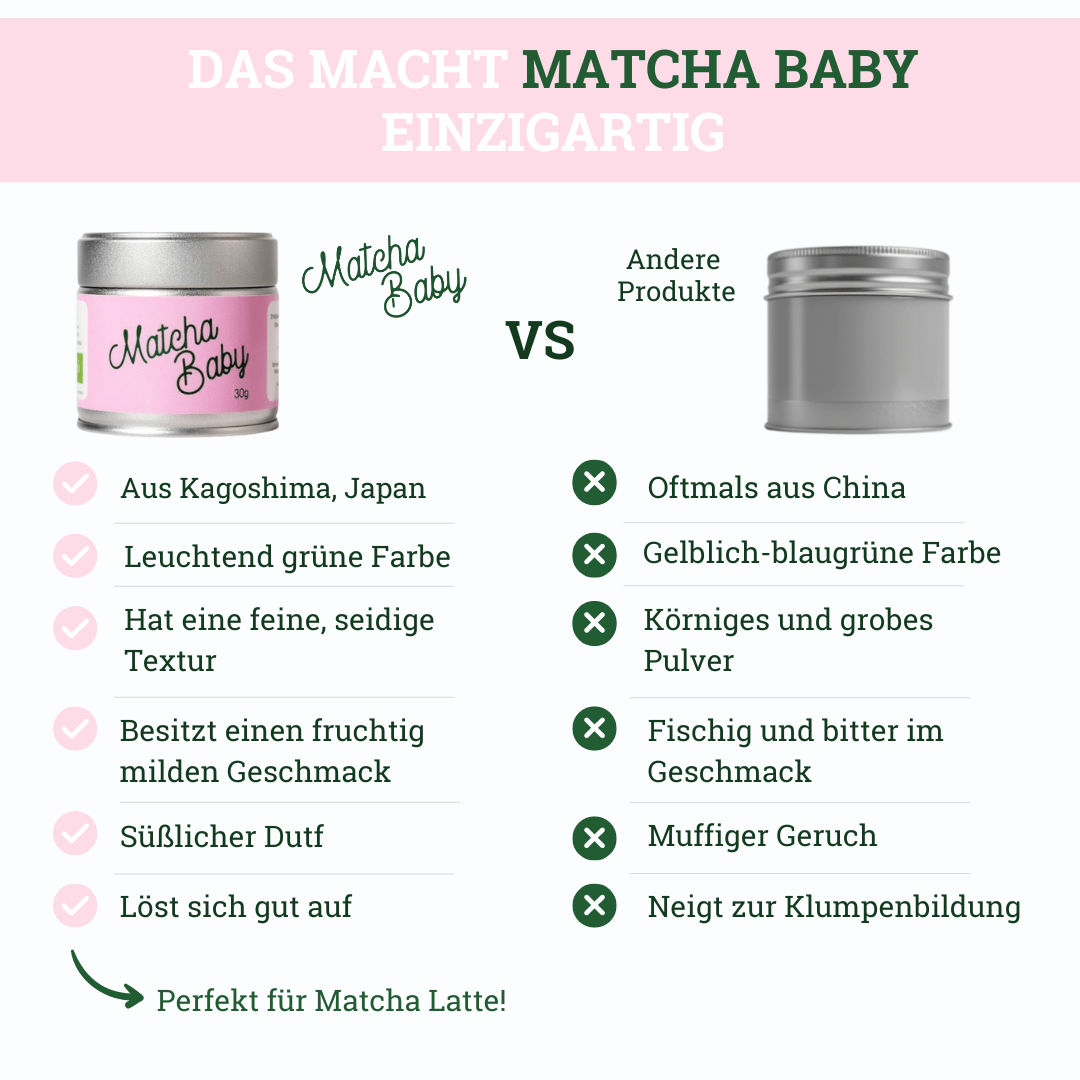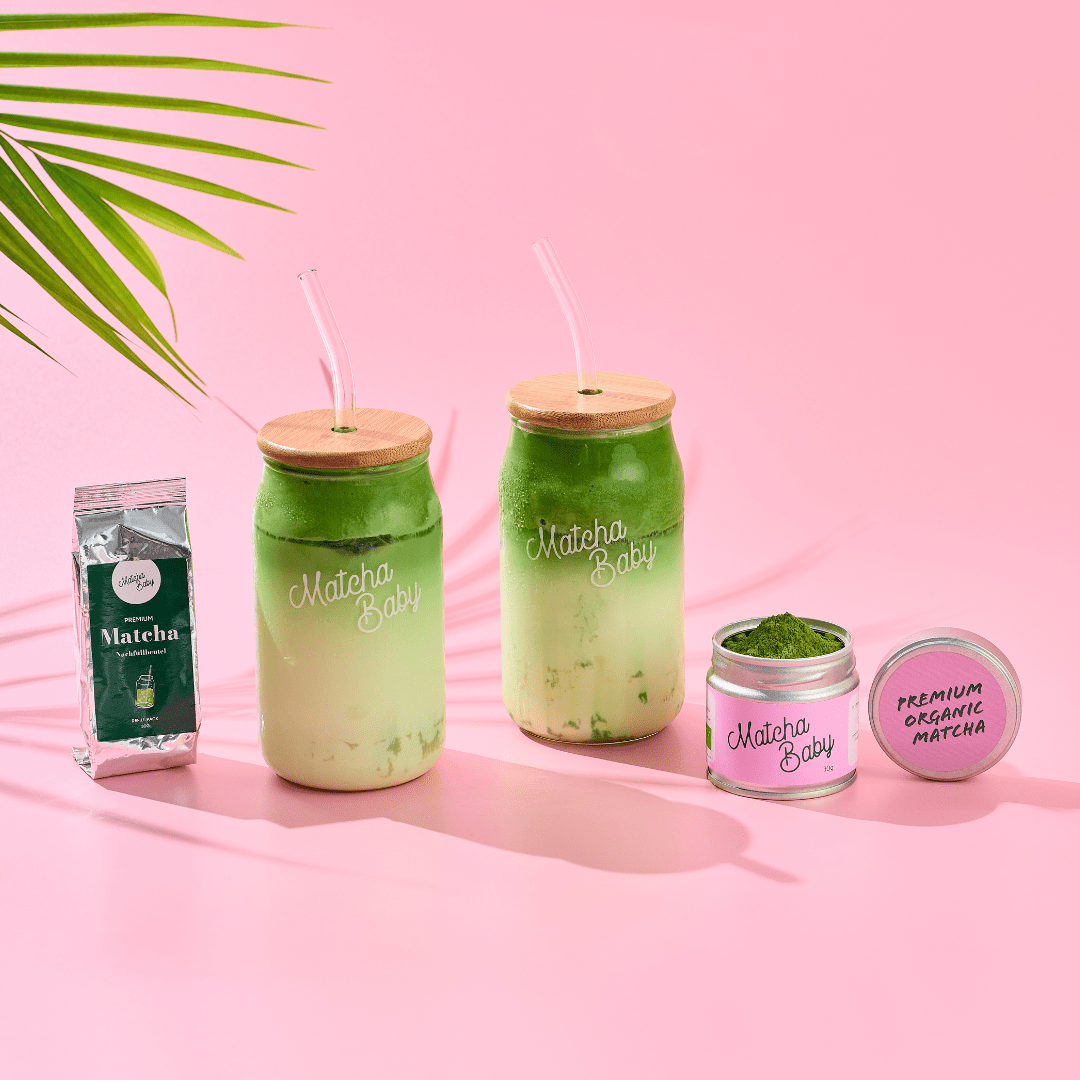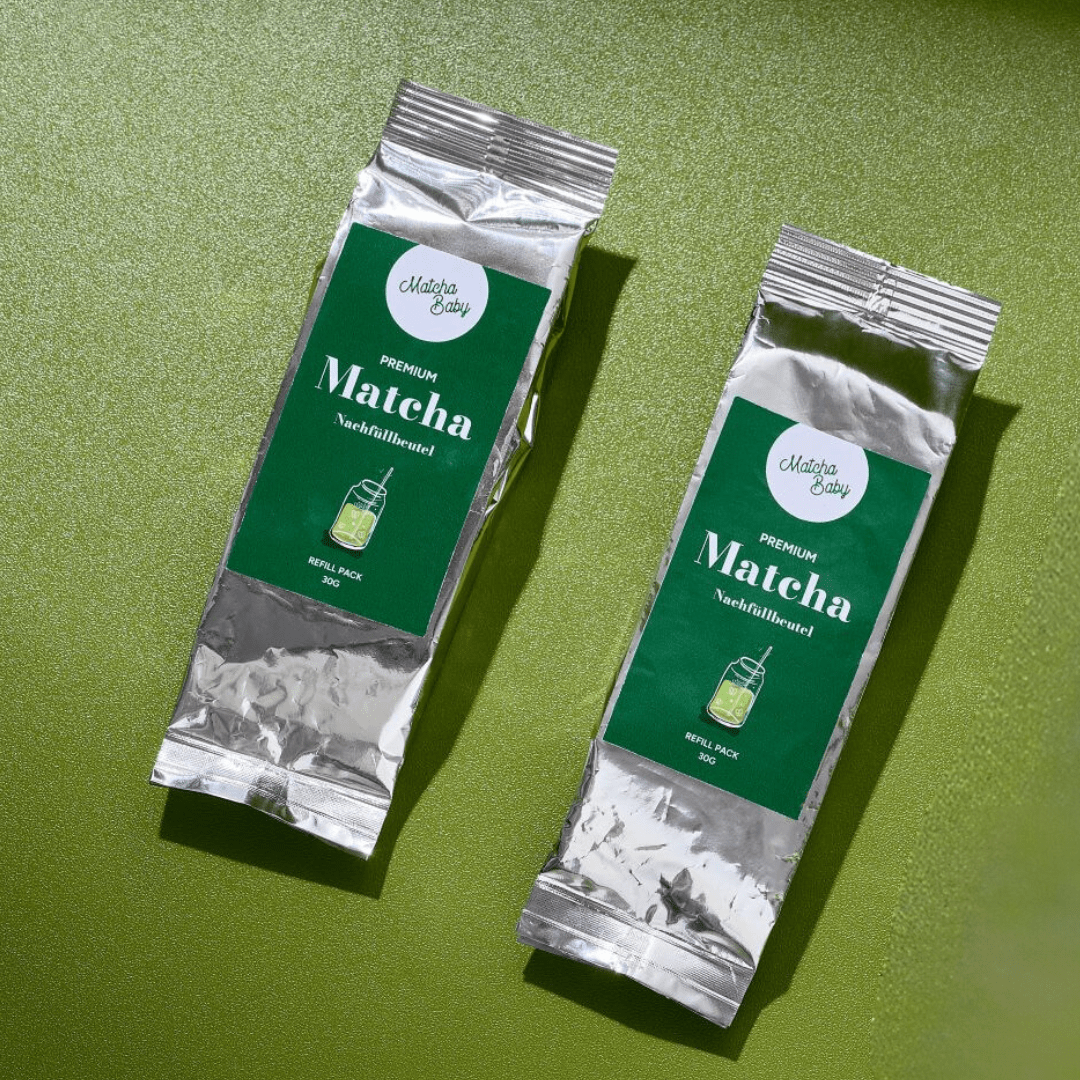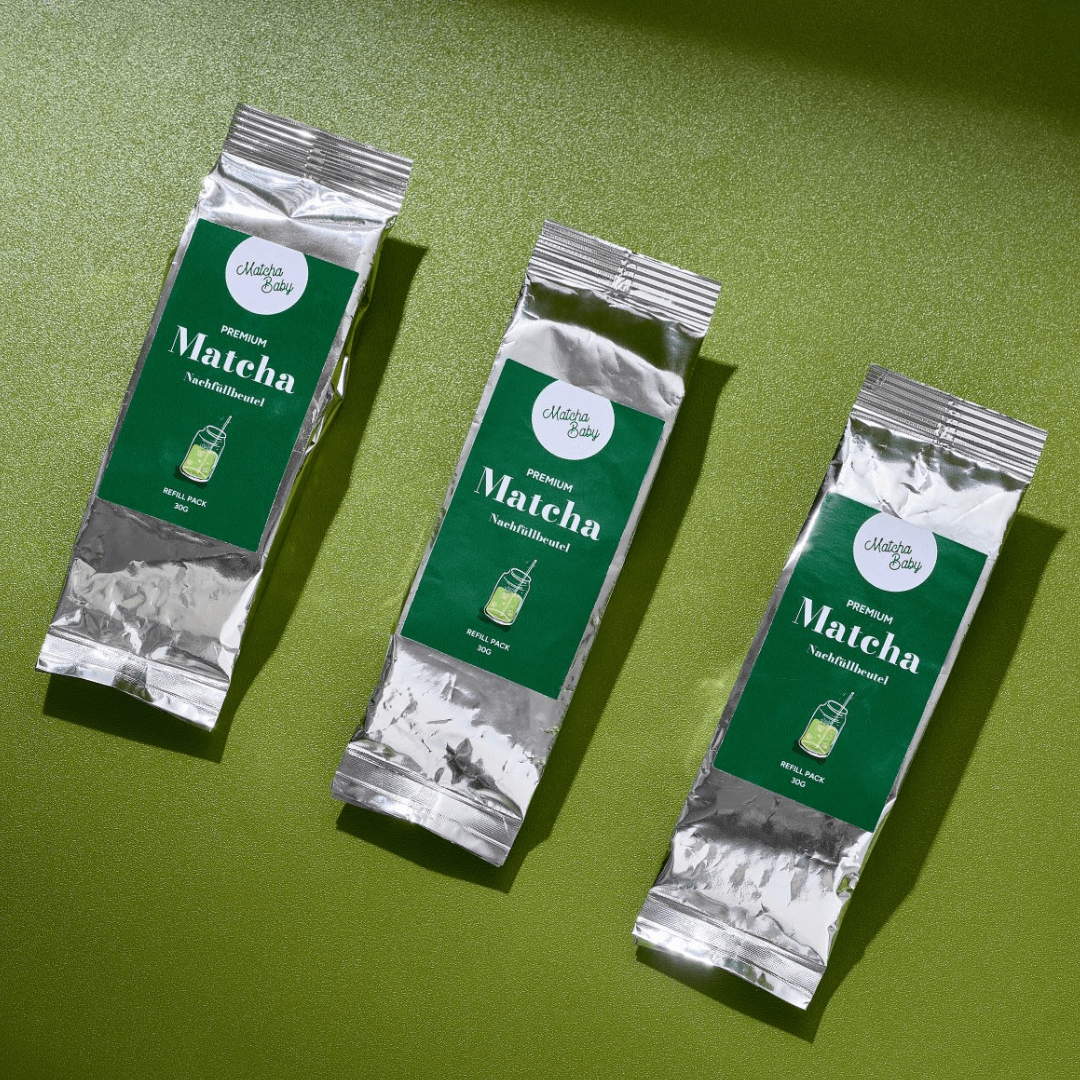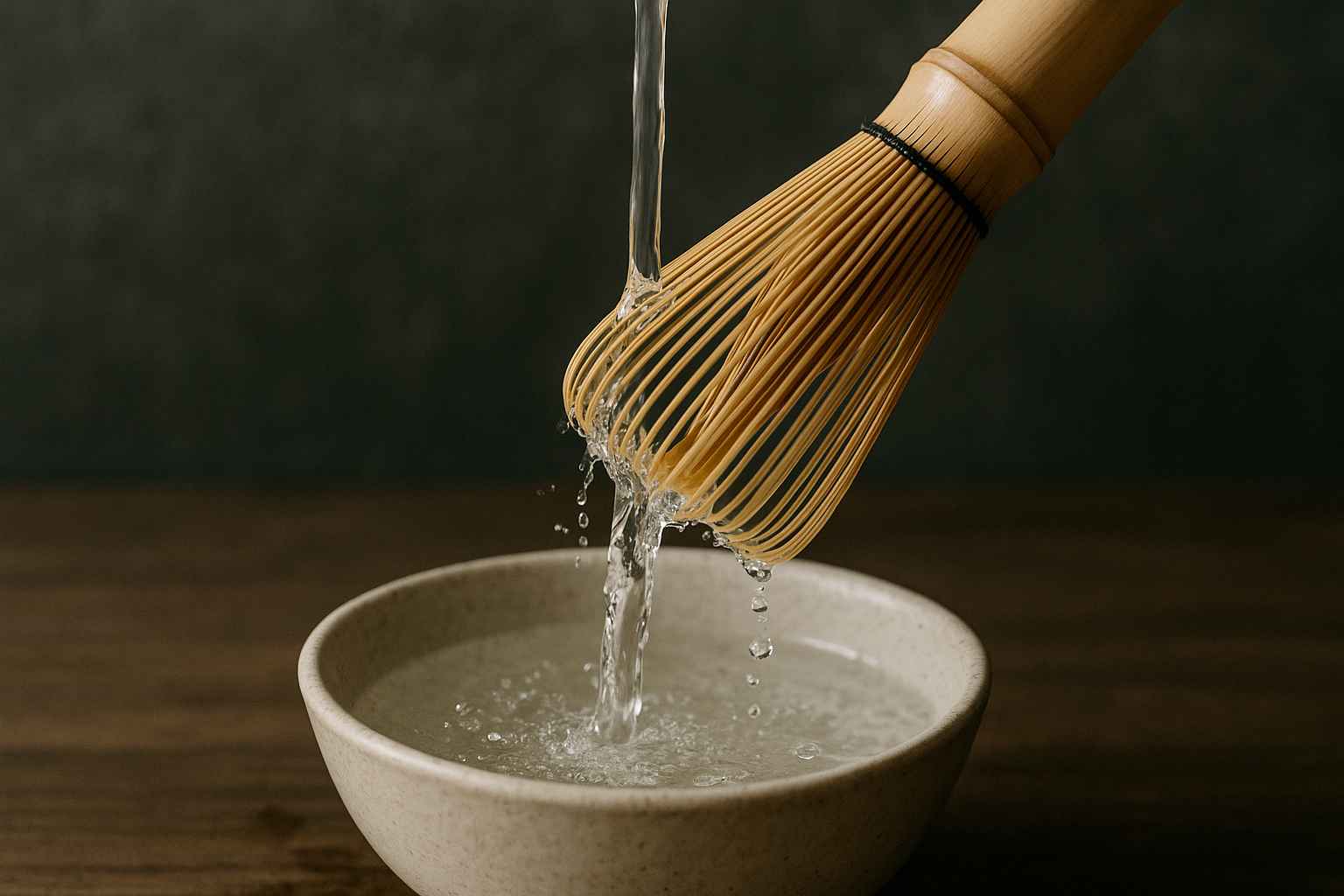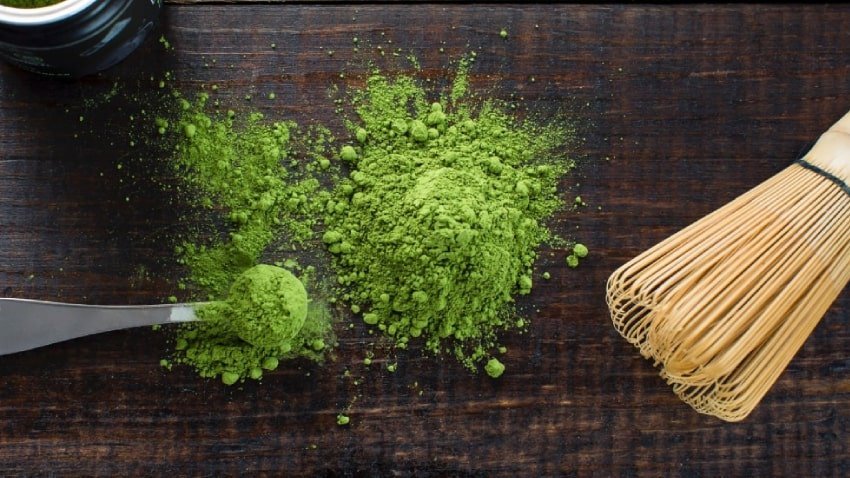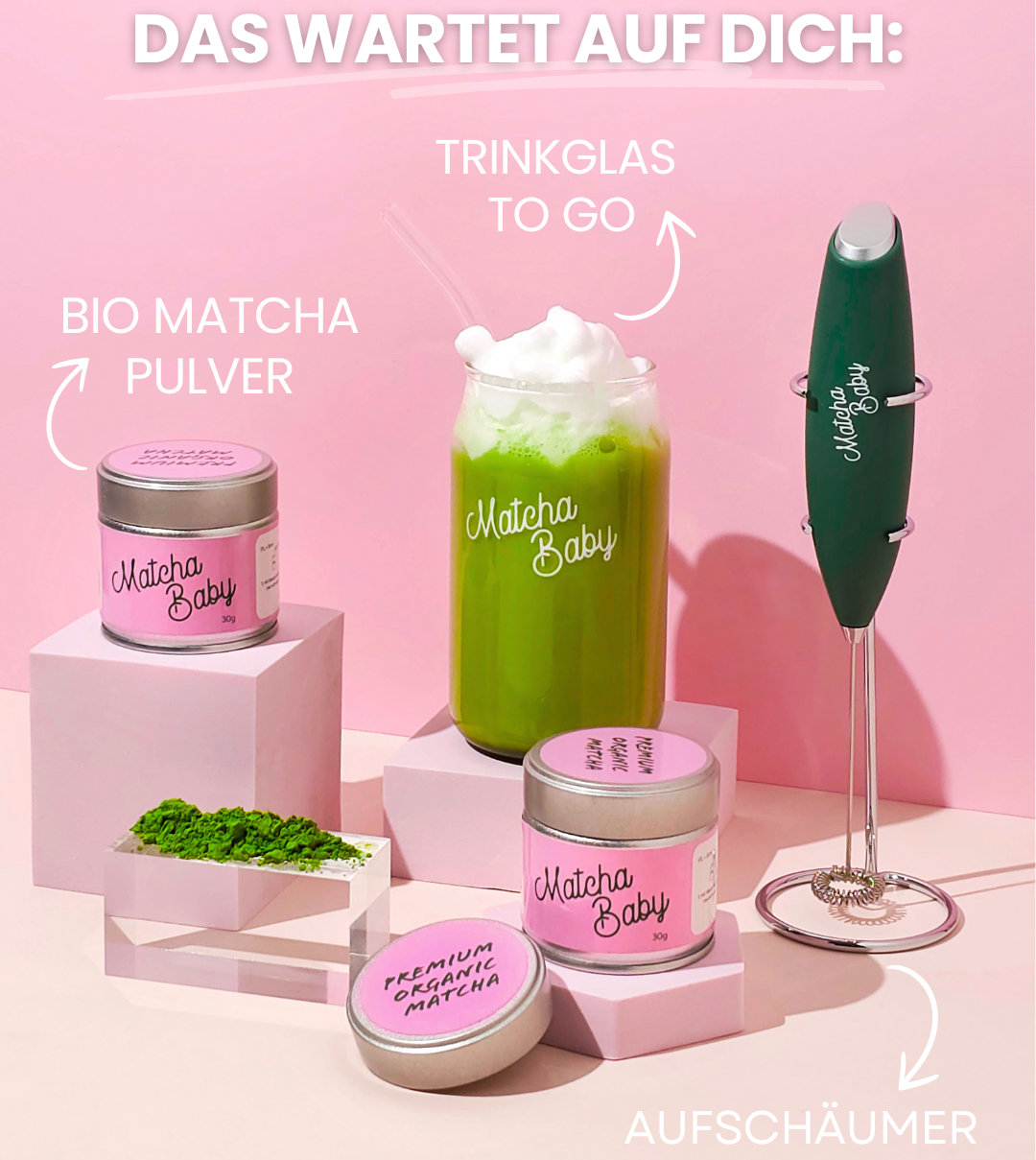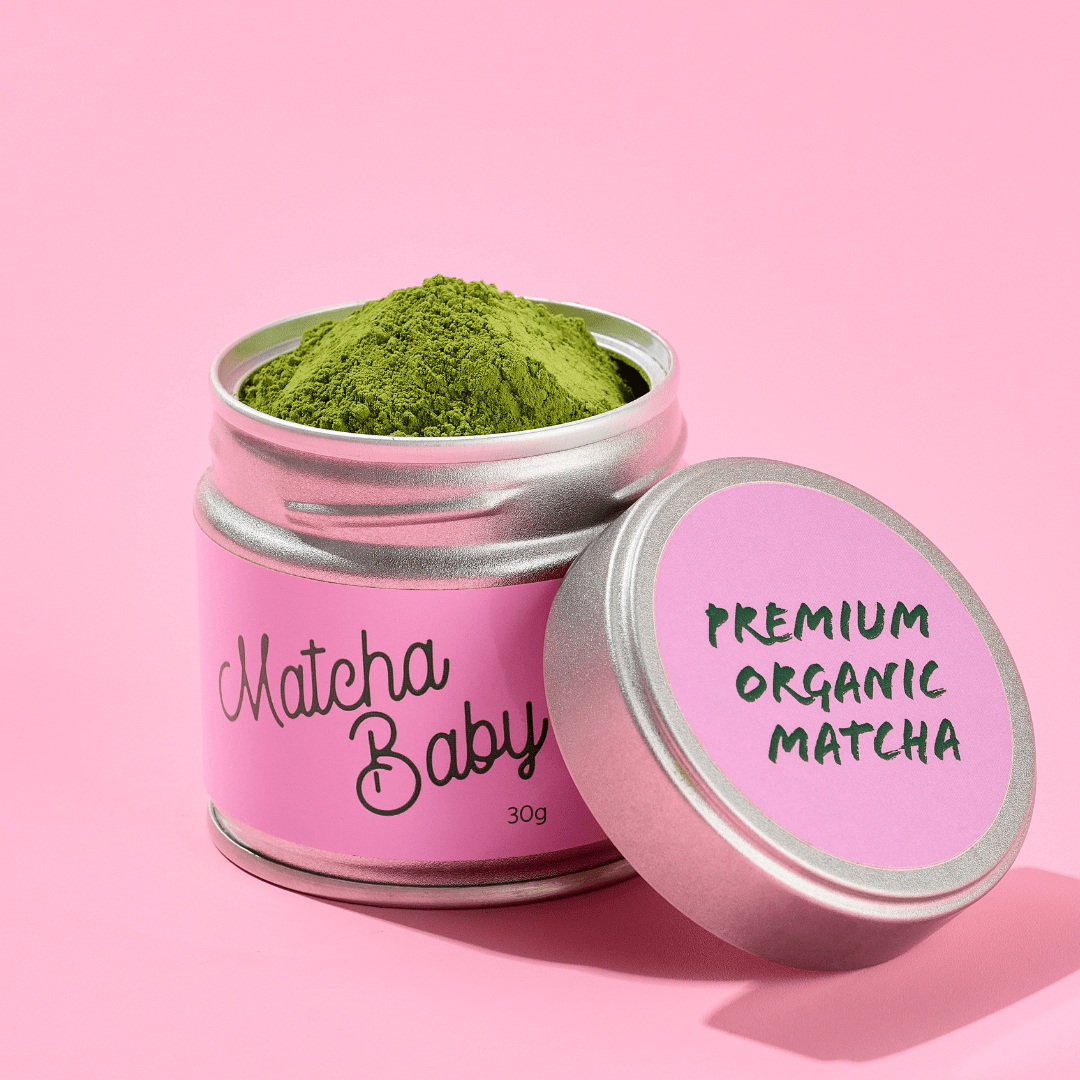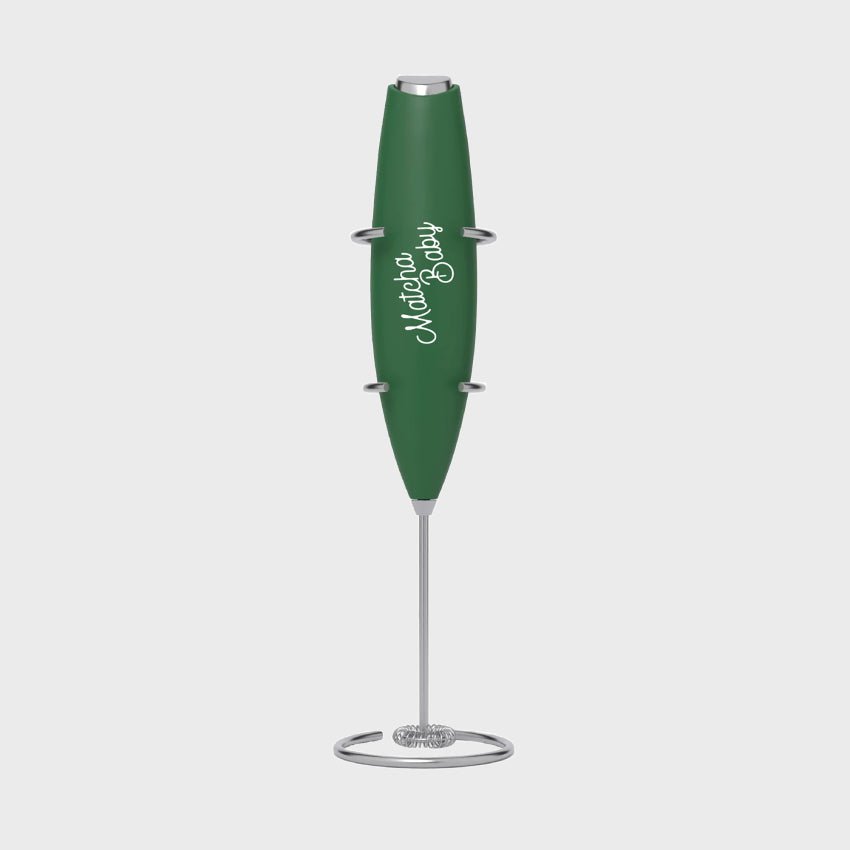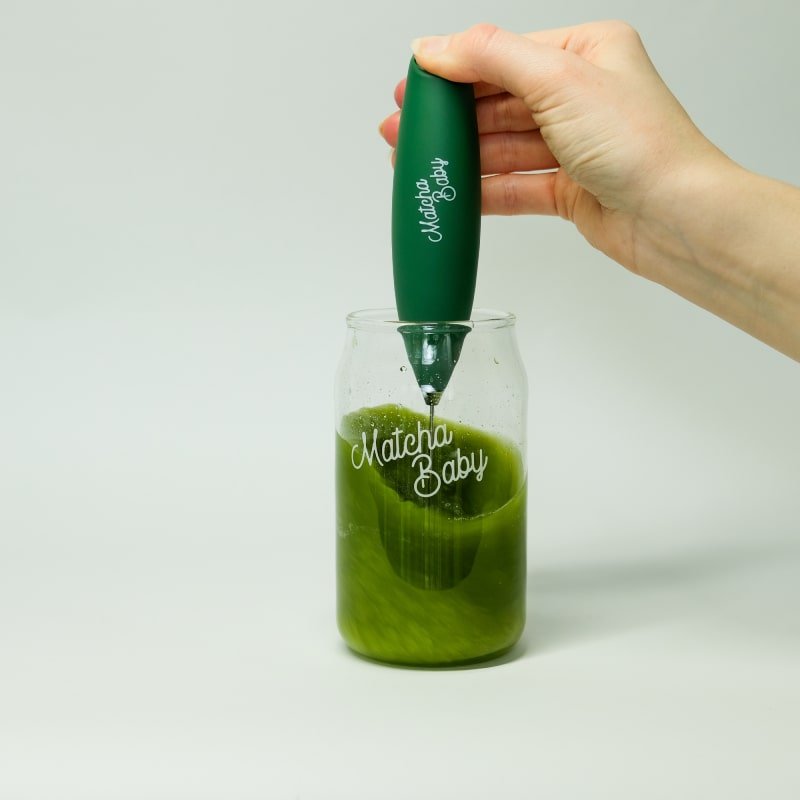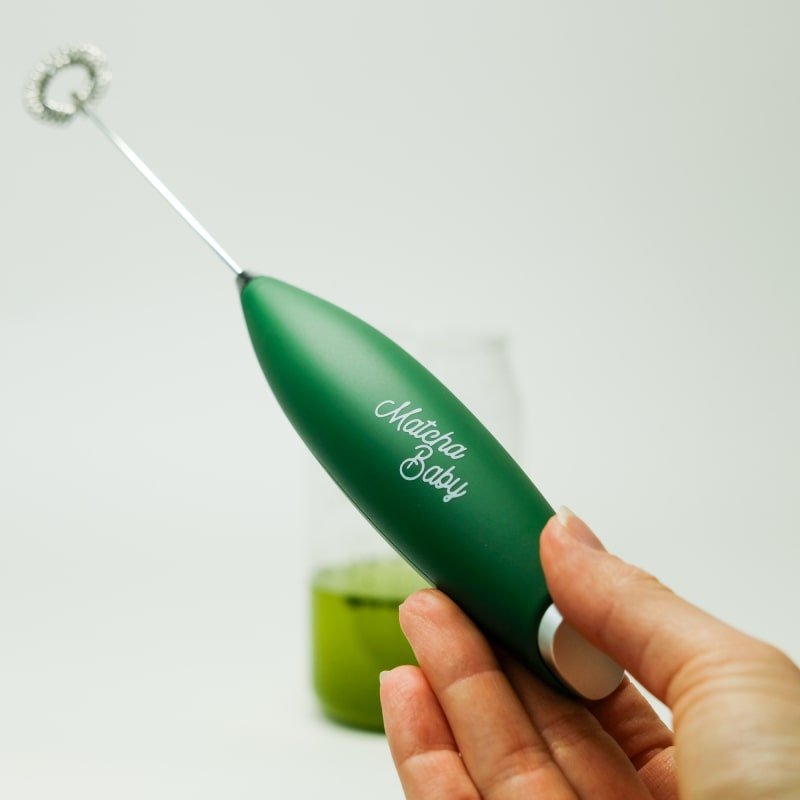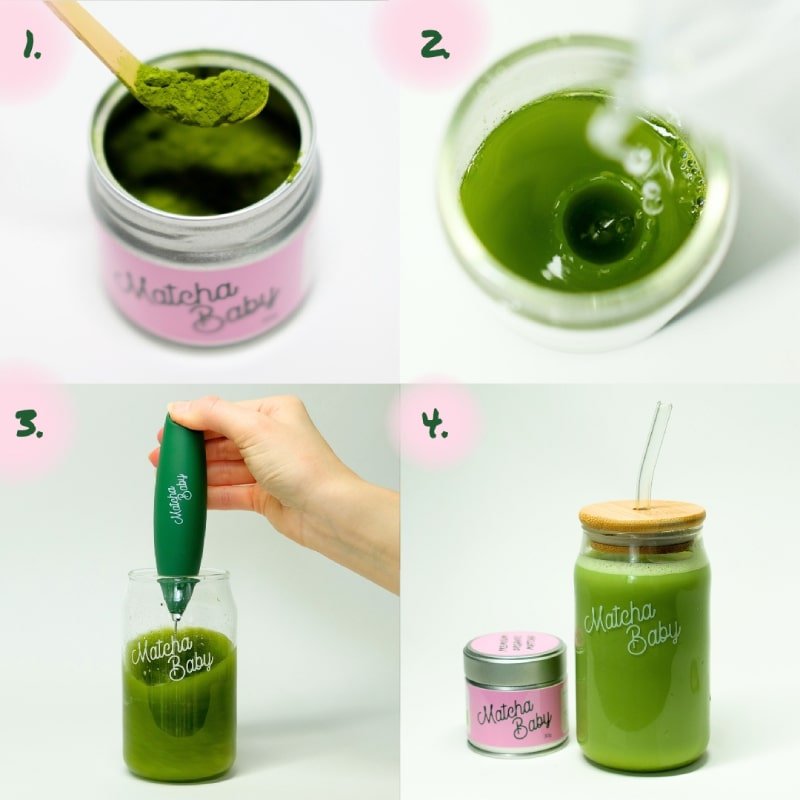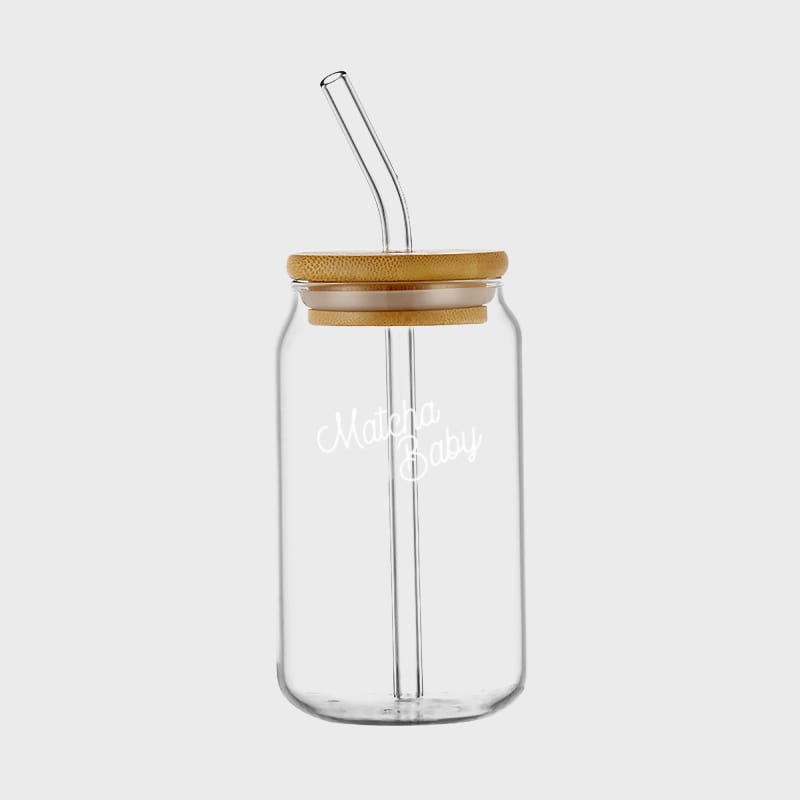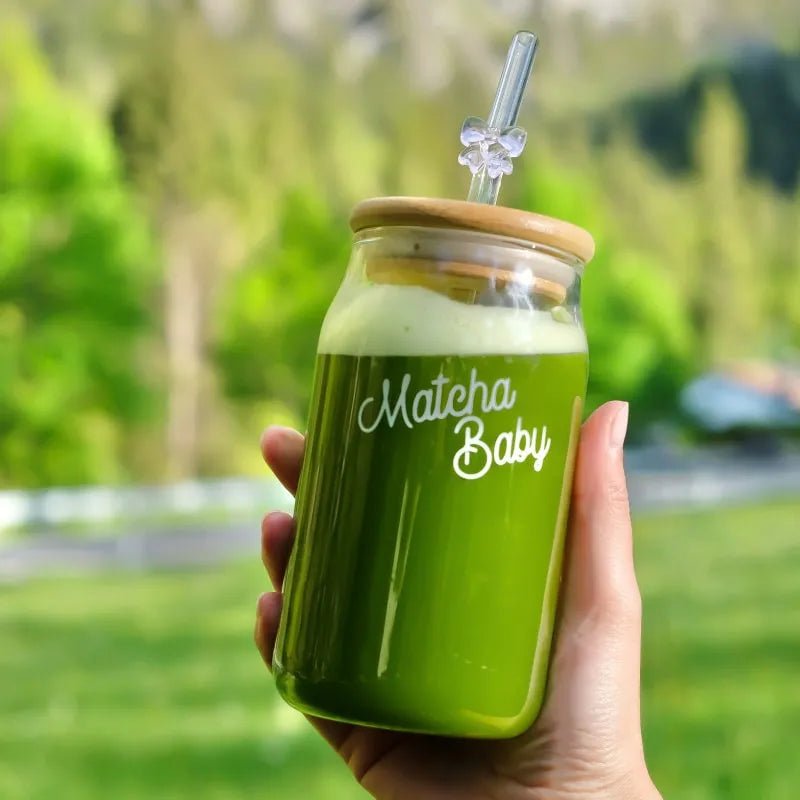Matcha tea instead of coffee

Matcha tea instead of coffee
Matcha tea instead of coffee – a trend that's becoming increasingly popular. And we want to show you why matcha is so much better than coffee and why you should definitely switch from coffee to matcha. We'll answer all your questions about matcha and coffee – get ready for the green superfood!
You've probably heard a lot about matcha, and if you've visited our site often—or even purchased from us—you know that we're absolute matcha fans and that matcha can be easily incorporated into anything. But if you're not quite sure what benefits matcha can offer you compared to coffee, and you're not yet familiar with the stimulating effects of green tea on the body , don't worry: This blog post will give you all the answers.
How does your body react to coffee?
At Matcha Baby, we naturally start our day with a cup of matcha as a matter of principle. However, coffee is still arguably one of the most popular beverages in the world. Many people—and perhaps you too—start their day with a cup of coffee to stay alert and focused.
But how does our body actually react to coffee?
The main characteristic of coffee is its caffeine content. Caffeine is a stimulant and can stimulate the central nervous system, making us feel more alert and energetic. In the brain, caffeine displaces the drowsy adenosine. This means your body can't get tired. Drive, mood, alertness, and concentration are all increased. Caffeine also helps you think a little faster.
However, caffeine also increases heart rate and blood pressure, which can make us feel restless or even anxious. Coffee can also stimulate the gastrointestinal tract and lead to digestive problems, especially if you drink too much.
Of course, every body reacts differently to coffee. Some people can enjoy a cup of coffee in the morning without experiencing any adverse effects, while others are more sensitive to caffeine and experience discomfort. It all depends on the individual...
When does coffee become dangerous?
If you drink too much coffee—that is, if you consume too much caffeine—you can develop cardiovascular problems. This can also lead to heart palpitations or cardiac arrhythmias. Many coffee drinkers also become nervous, anxious, sweat, and sleep poorly.
Overall, coffee can be a great way to help you stay alert and focused while working. But as with everything in life, you should maintain a healthy balance and monitor your coffee consumption to avoid negative effects.
How does your body react to matcha?
Valuable ingredients in Matcha tea
Matcha tea originates from Japan and is made from the leaves of the tencha plant. Unlike other types of tea, the whole leaf is ground into a fine powder and infused with hot water. Because you consume the entire leaf, the tea also contains more valuable ingredients, such as secondary plant compounds.
Unlike coffee, a teaspoon of matcha powder contains less caffeine but a high concentration of antioxidants and nutrients, such as chlorophyll and L-theanine. L-theanine is an amino acid found in matcha that can calm and relax the central nervous system without causing drowsiness.
Effects of Matcha on the body
Matcha tea is a great alternative to coffee because it not only keeps you alert and focused, but also has numerous health benefits. Due to its high antioxidant content, matcha can help fight free radicals in the body, thus reducing inflammation. Additionally, one to two cups of green tea can help improve brain health and boost metabolism.
However, it's important to note that matcha can also stimulate the gastrointestinal tract, especially if consumed in excess. As with coffee, every body reacts differently, so you should keep an eye on your matcha intake.
All in all, matcha can be a great alternative to coffee, not only helping you feel more alert and focused, but also offering numerous health benefits . So give it a try and see how your body reacts!
In summary: Why is matcha better than coffee?
In the battle of matcha vs. coffee, we can say that matcha tea is definitely a healthy alternative to coffee. The green powder contains less caffeine but is rich in antioxidants and nutrients that can help fight free radicals and improve health. A cup of tea can also help reduce stress and improve concentration.
However, you should be careful not to consume too much matcha. If you enjoy matcha latte , make sure you add very little or no sugar. Otherwise, the miracle drink will become unhealthy. Of course, you can also use alternatives to sweeten your slightly bitter matcha a bit.
We've summarized the most important questions for you in the next section. Check out our Matcha vs. Coffee FAQs.
FAQ about Matcha vs. Coffee
Is matcha tea better than coffee?
This depends on several factors. Coffee contains more caffeine than a teaspoon of matcha powder . However, matcha tea has many other beneficial properties that coffee doesn't have.
Matcha tea is rich in antioxidants that can help fight free radicals in the body. It also contains L-theanine, an amino acid that can help reduce stress and improve concentration.
Does matcha have less caffeine than coffee?
Yes, matcha tea does indeed contain less caffeine than coffee. One cup of matcha contains about 70 mg of caffeine, while a cup of coffee contains about 100 mg. However, caffeine is released differently in matcha tea than in coffee, resulting in a slower and longer-lasting wake-up effect.
This means that with matcha you can stay awake more evenly and for longer throughout the day without experiencing a sudden drop in energy levels.
Is Matcha Latte healthier than coffee?
Matcha latte is actually healthier than a regular coffee latte. While matcha contains less caffeine, it contains more antioxidants and nutrients.
However, a matcha latte can also be high in calories due to the added sugar and milk. If you want to drink matcha latte as a healthier alternative to coffee, you should make sure to reduce the sugar and milk content in the latte or replace it with alternatives like oat milk.
What happens if you drink matcha every day?
Regular consumption of matcha tea can have many positive health effects. However, too much matcha can lead to nausea. It's best not to drink more than 1-2 cups of green tea per day.
Matcha tea can help strengthen the immune system, boost metabolism, and regulate blood sugar levels. It can also help reduce stress and improve concentration. However, side effects of too much matcha include stomach upset and sleep disturbances.
How much matcha can you drink per day?
The recommended amount of matcha per day is 1-2 cups. Make sure to buy high-quality, organic matcha that's free of heavy metals and pesticides.
Green tea should also not be consumed on an empty stomach, as this can cause stomach upset. It's best to drink your matcha with a meal or after lunch.

